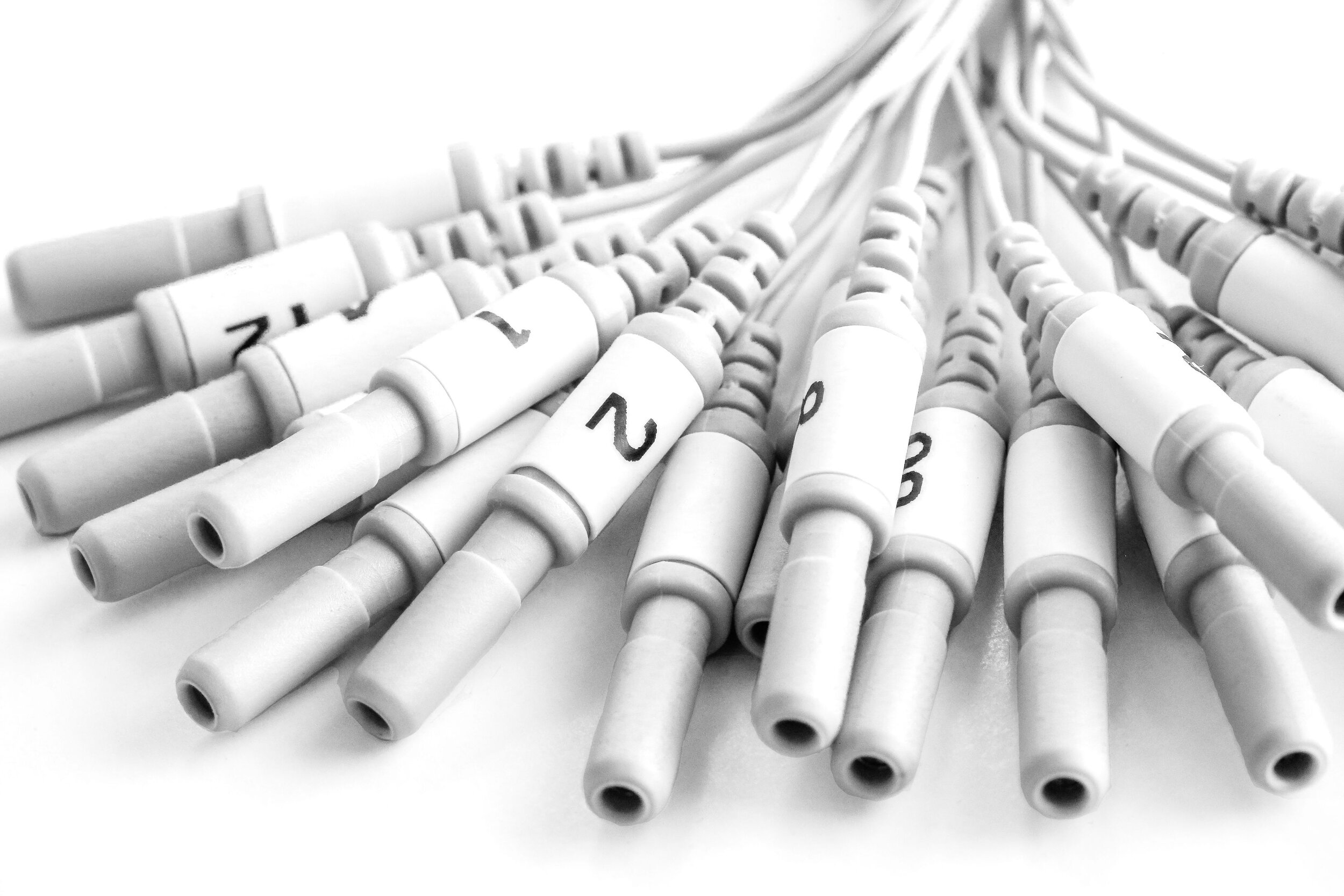Who are we?
Threshold NeuroDiagnostics is a brain-computer interface company. We leverage FDA-approved products to overcome regulatory bottlenecks, ethical concerns, and substantial costs associated with human invasive electrode brain computer interface.
Medical Products - The Medusa Electrode
The Medusa Electrode is an FDA-registered Class II (exempt) product that allows access to Class III invasive neuromodulation electrodes. Product variants of The Medusa Electrode adapt manufacture specific plugs to universal 1.5 DIN connectors that are standard input/outputs for neurophysiology equipment. In short, in plain language, The Medusa cable connects the human nervous system to computers.
Consulting
We have over 16 years of experience connecting to neuromodulation electrodes. This experience includes over 400 individual instances of connecting to human subjects who are either under anesthesia or “awake.” As such, we are experts in anesthetic variables that influence data and are well acquainted with the unpredictable nature of dealing with awake human subjects. In addition, we are experts in the technical aspects of a diverse range of neurophysiology equipment and the technical problems that can arise. In short, we have significant experience that can help you avoid the learning curve.
We offer a wide range of consulting services to help you - contact us.
About the Founder,
Geoffrey Allott, B.A., CNIM, is a forward-thinking, results-orientated leader with two decades of neuromodulation experience. Allott’s expertise includes market deployment of an essential tool for human biomarker mining and developing new closed-loop methodologies. Unparalleled first-hand experience in human functional neurophysiology acquired as an essential team member in 14,000 surgical cases where more than 30,000 hours of solo neurophysiological testing in humans was acquired. This neuromodulation innovator is delivering the next generation of neuromodulation products, improving the delivery of current products, and pivoting neuromodulation technology to diversify revenue streams.
FAQs
Are those 1.5 DIN connectors (EEG Plugs)?
Yes, The Medusa Electrode converts manufacture-specific test leads to standard EEG plugs that connect to all neurodiagnostic equipment.
Is the Medusa Electrode FDA approved?
Yes and no- The Medusa Electrode is FDA “registered” and regulated. We took the safest possible approach to connect to neuromodulation implants by utilizing a pathway off of the sterile field. The Medusa Electrode also does not make mechanical contact with implants. As such, The Medusa Electrode qualifies as a Class II (exempt) product that does not need “510k approval” to treat a specific ailment. However, The Medusa Electrode is still regulated by the FDA.
Why are there so many plugs?
Neuromodulation manufacturers use specific connectors across their entire product line. The Medusa Electrode is designed to adapt to any neuromodulation product. For example, even though a DBS electrode may have 4 contacts, a spinal cord stimulator may have 16 contacts. In addition, there are EEG plugs- for future expansion, where multiple contacts could be tied together to access by a single EEG plug.
Why is The Medusa Electrode “Single use?”
Cost. The Medusa Electrode is FDA registered. To qualify for “repeated use” under FDA regulations, extensive testing is required for durability. This testing would inflate the cost of The Medusa Electrode substantially. Don’t reuse The Meduas Electorde- that would be violating FDA regulations.
When is the Medusa Electrode going to be available for other neuromodulation manufacturers?
We are working on that. Please sign up on the wait list under the purchase page. If you represent a manufacturer, we would love to talk to you.
We have made our own electrodes. Why would we pay for it?
We were once just like you- nieve. Do you know what a quality management system is? How about a device history record?
If you make a medical product, you are still subject to regulatory oversight. If you don’t sell your device, you are not regulated by the FDA. However, even if you are a doctor using it on your own patients, you are still subject to ISO and JCAHO regulations that are the same as FDA standards. In addition, there is significant liability for violating patent rights. We are here so you can avoid all of that.



